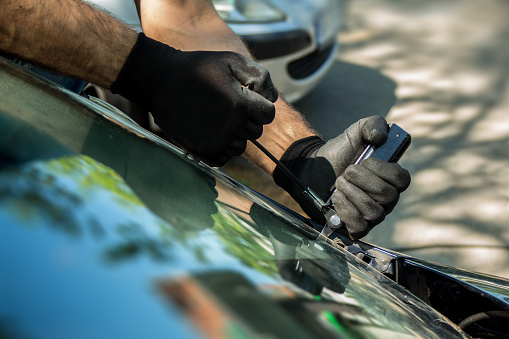Be Sure You Make Wise Auto Repair Decisions
Owning a car gives you the freedom to go where you want, when you want. However, owning a car also means that you have to keep your vehicle in good working order. By learning some of the basics of auto repair, you can make sure that your car is always running smoothly.
It is important to maintain the level of your brake fluid. The brake fluid compartment is usually close to the engine and should be checked regularly. Make sure the compartment is two third full and add more brake fluid if you need to. There might be a leak in your system if you often need to add more brake fluid.
Don't pay money for air. Familiarize yourself with the correct air pressure of your car tires and invest in an air compressor. Check your tires on a regular basis and keep them properly inflated on your own. Being able to do this yourself on a regular basis will save you money in terms of wear and tear and regular maintenance.
To save a trip to the auto repair shop, you should take a look at your owner's manual. Here, you may find hints or perhaps answers to questions you may have about your vehicle. It can be quite helpful to know the size of your engine or its configuration, which is usually found in the manual.
If you are having work done on your car, make sure you get a written estimate beforehand. The estimate should include what is being repaired, the parts that will be needed and the anticipated cost for labor. It should also say that they will call for your approval before doing any additional work which exceeds the amount or time specified.
Take out all of the valuable items in your car when it is being repaired. The mechanic may find that these things get in the way and they may get misplaced to where they cannot be located later. You want to remove items from your trunk also.
Make sure your auto technician is qualified to work on your specific car. Motor vehicles are complex machines and each brand has unique characteristics. Some brands require special tools, parts, and procedures. Many standard auto technicians either lack these items or don;t have them easily available. Without these items, they can't fix your vehicle.
When you take your car in for repair, verify their hourly rate and total cost of repair before you hand over your keys. Some repair shops display their rates, so read them carefully and be sure to ask about anything you don't fully understand. You must be able to tell how the repairs are being billed to you. Some stores are able to give you an estimate for how long they'll keep your car. Minor repairs can be considered jobs that require a full day of work to some manufacturers.
A dent or scratch in a plastic bumper is very easy to fix. Start by cutting the bits that stick out from the dent until the edges are smooth. You can then use a filler to make the dent disappear. Sand over the area and paint to hide the repair.
Watch for warning signs with a mechanic. There are a few signs to look for when you speak with them about your car. If they try talking really fast about the necessary repairs, can't look you in the eye when talking to you, or try to brush you off, you should find another mechanic. They may be hiding something or they may only care about the money.
Unless it is required by your car's warranty, don't feel obligated to use the repair shop at the dealership. There are many reputable independent auto repair shops and they are often cheaper. Ask your friends and family members for a recommendation if you are unsure which shops in your area are trustworthy.
Although you can easily handle minor issues with your vehicle, you should not attempt to fix major issues. Keep in mind that you're not a professional. It may seem like an easy fix, but in modern computerized vehicles, that may not be the case. To be sure that the job is done right, have an auto repair shop diagnose the issue. Give them every detail about what happened and if there were any sounds associated with the problem, and let them diagnose the trouble.
Original Equipment Manufacturer is often referred to as OEM. Keep this in mind when you are having parts replaced on your vehicle. If you walk in and tell the mechanic that you want OEM parts, you will sound knowledgeable. An unscrupulous mechanic may think better of trying to pass used parts off onto you.
Auto repair does not have to be as mysterious a subject as many mechanics make it sound. Once you understand some of the basics, you can make your own repairs at home without the inconvenience of taking your car into the shop. Use the tips you have just read to keep your car in good condition.

